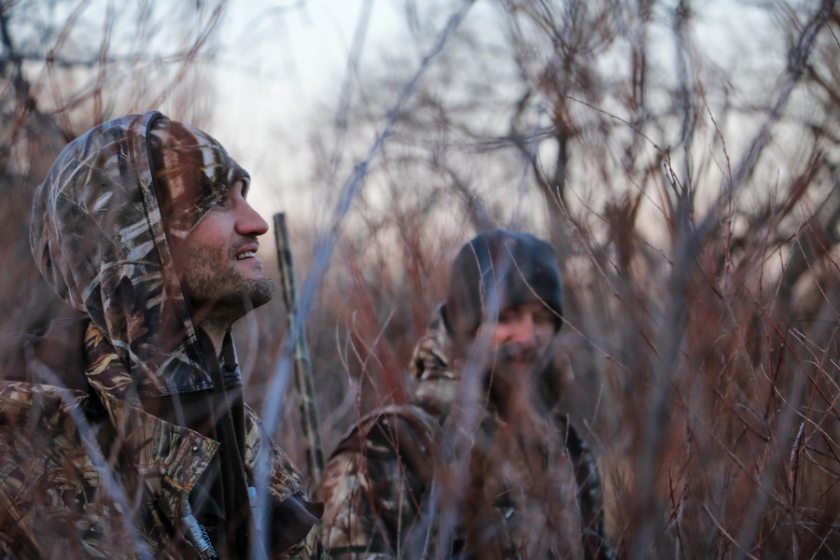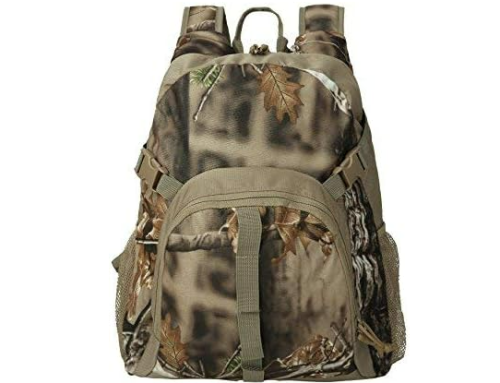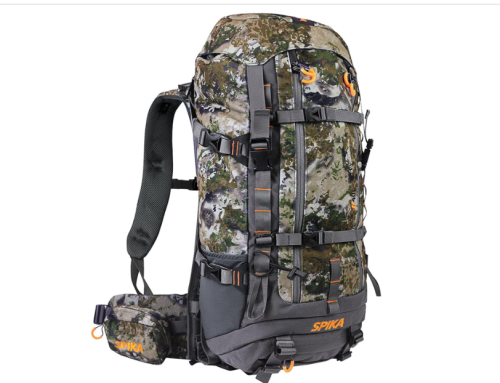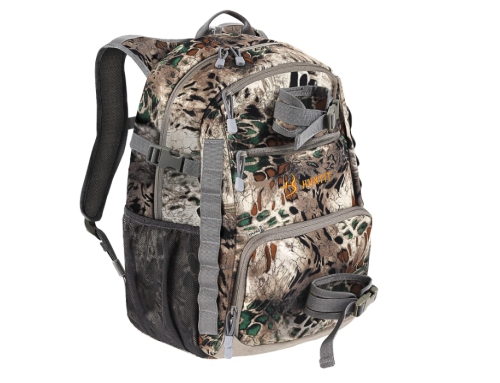Hunting is a popular recreational activity that allows individuals to spend time outdoors and provides a sustainable source of food. In order to get started with hunting, it is important to have the proper gear, find a safe and legal hunting location, obtain necessary licenses and permits, and prepare for the hunt. This blog will outline the steps to take to get into hunting, including choosing the right equipment, finding a hunting spot, obtaining licenses and permits, preparing for the hunt, practicing ethical hunting practices, and cleaning and processing your harvest.
[ez-toc]
Choosing the Right Equipment
Choosing the right equipment is an important step in getting into hunting. The right equipment will depend on the type of hunting you plan to do and your personal preferences. Some common types of hunting equipment include firearms, bows, and ammunition. When selecting your equipment, it is important to consider factors such as the type of game you will be hunting, the terrain where you will be hunting, and the type of hunting experience you are looking for.
There are many different types of firearms and bows to choose from, including rifles, shotguns, muzzleloaders, and compound bows. It is important to choose a firearm or bow that is appropriate for the type of game you will be hunting, and that is comfortable for you to use. In addition to choosing the right firearm or bow, selecting the appropriate ammunition or arrows is also important.
When selecting your hunting equipment, it is a good idea to consult with experienced hunters or visit a hunting supply store to get advice and try out different options. It is also important to consider the maintenance and care of your equipment and the cost of any accessories or additional gear you may need. By choosing the right equipment, you can ensure that you are well-equipped for your hunting trip.
Finding a Hunting Spot
Finding a hunting spot is an essential step in getting into hunting. Finding a safe and legal location where you can hunt without endangering yourself or others is important. There are two main types of land available for hunting: public land and private land.
Public land is land that is owned by the government and is open to the public for hunting. This may include national forests, state parks, and wildlife management areas. The advantage of hunting on public land is that it is generally free to access, and a variety of game species are often available. However, public land can also be crowded and may have specific rules and regulations that you need to follow.
Private land, on the other hand, is land that is owned by an individual or a private organization. In order to hunt on private land, you will need to obtain permission from the landowner. The advantage of hunting on private land is that it is often less crowded and may provide access to more desirable hunting locations. However, hunting on private land may require paying a fee or purchasing a hunting lease.
When looking for a hunting spot, it is important to research local hunting regulations and seek advice from experienced hunters. You may also want to consider factors such as the availability of game species, the terrain, and the distance from your home. By taking the time to find a good hunting spot, you can ensure a successful and enjoyable hunting trip.
Obtaining Any Necessary Licenses and Permits
Obtaining the necessary licenses and permits is an important step in getting into hunting. In order to hunt legally, you must have the appropriate licenses and permits for the state and area where you plan to hunt. The types of licenses and permits required for hunting will vary depending on the state and the type of game you will be hunting.
In most states, hunters are required to have a basic hunting license in order to hunt any species of game. This license is typically valid for a specific period, such as one year, and allows the holder to hunt various game species. In addition to a basic hunting license, some states require hunters to have a tag permit for each animal they plan to hunt.
In some cases, hunters may also need to obtain special permits to hunt certain game species. For example, some states require hunters to have a permit in order to hunt big game species such as deer or elk. In addition, some states have specific permits for hunting migratory game birds, such as ducks and geese.
Obtaining the necessary licenses and permits is typically a simple process. In most cases, hunters can apply for and purchase their licenses and permits online or at a licensed hunting and fishing retailer. It is important to ensure that you have all of the necessary licenses and permits before you go on your hunting trip to avoid legal issues.
Preparing for the Hunt
Preparing for your hunt is an essential step in getting into hunting. In order to have a successful and enjoyable hunting trip, it is important to be physically and mentally prepared. This includes dressing appropriately for the weather, packing necessary supplies, and staying hydrated.
When dressing for your hunt, it is important to consider the weather and the terrain where you will be hunting. You should wear layers of clothing that will keep you warm and dry, as well as sturdy boots or shoes that will provide good traction on the ground. In addition to your clothing, you may also want to bring along additional gear such as a hat, gloves, and rain gear.
It is also important to pack necessary supplies for your hunting trips, such as food, water, and first aid items. You should bring enough food and water to sustain you for the duration of your hunt and any medications or emergency supplies you may need. You may also want to bring along a map, compass, or GPS device to help you navigate the area where you will be hunting.
In addition to being physically prepared, it is also important to be patient and understand that hunting takes time and practice. You should be prepared to spend several hours or even days in the field in order to have a successful hunt. Being prepared and patient can ensure that your hunting trip is enjoyable and successful.
Ethical Hunting Practices
Practicing ethical hunting practices is an important part of getting into hunting. Ethical hunting means following the laws and regulations that govern hunting in your area, treating animals with respect, and being mindful of your impact on the environment.
In order to hunt ethically, it is important to familiarize yourself with the hunting laws and regulations in your state and the area where you will be hunting. These laws and regulations may cover topics such as the types of game you can hunt, the weapons you can use, and the seasons when hunting is allowed. By following these laws and regulations, you can ensure that you are hunting legally and responsibly.
In addition to following the laws and regulations, ethical hunting also involves treating animals with respect. This means avoiding unnecessary suffering and ensuring that any animals you harvest are handled and processed in a humane manner. It is also important to be mindful of your environmental impact and take steps to minimize your footprint while hunting.
By practicing ethical hunting practices, you can ensure that you are enjoying the sport in a responsible and sustainable manner. This not only helps to protect the animals and the environment, but it also helps to maintain the reputation and future of hunting as a recreational activity.
Cleaning and Processing Your Harvest
Cleaning and processing your harvest is an important part of getting into hunting. Properly cleaning and processing your harvest not only ensures that the meat is safe to eat, but it also allows you to enjoy the fruits of your hunt.
The first step in cleaning and processing your harvest is field dressing, which involves removing the internal organs from the animal. This process helps to cool the meat and prevent bacteria from growing, as well as making it easier to transport the animal. Field dressing typically involves making a small incision in the belly of the animal and carefully removing the internal organs.
Once the animal has been field dressed, the next step is to skin and quarter the animal. This involves removing the skin from the animal and cutting the meat into manageable pieces. Skinning and quartering the animal allows you to remove any excess fat and tissue, as well as making it easier to transport the meat.
The final step in cleaning and processing your harvest is butchering the meat. This involves cutting the meat into smaller cuts, such as steaks, roasts, and ground meat. Butchering the meat allows you to prepare it in a variety of ways, as well as making it easier to store and preserve.
It is important to properly clean and process your harvest in order to ensure that the meat is safe to eat. In addition, properly storing and preserving your harvest will help to ensure that it stays fresh and delicious. By taking the time to clean and process your harvest, you can enjoy the fruits of your hunt to the fullest.
Conclusion
Hunting is a popular recreational activity that allows individuals to spend time outdoors and provides a sustainable source of food. In order to get started with hunting, it is important to choose the right equipment, find a safe and legal hunting location, obtain necessary licenses and permits, prepare for the hunt, practice ethical hunting practices, and clean and process your harvest.
By following these steps, you can ensure that you are well-equipped and prepared for your hunting trip. You can also ensure that you are hunting legally, ethically, and responsibly and that you are able to enjoy the fruits of your hunt. Whether you are a beginner or an experienced hunter, these steps can help you to get the most out of your hunting experience.





